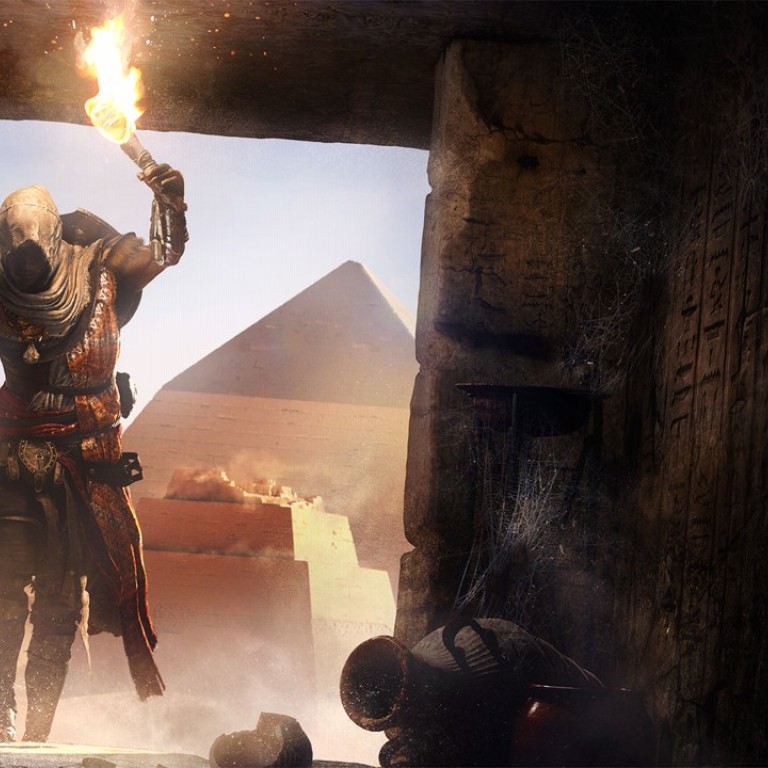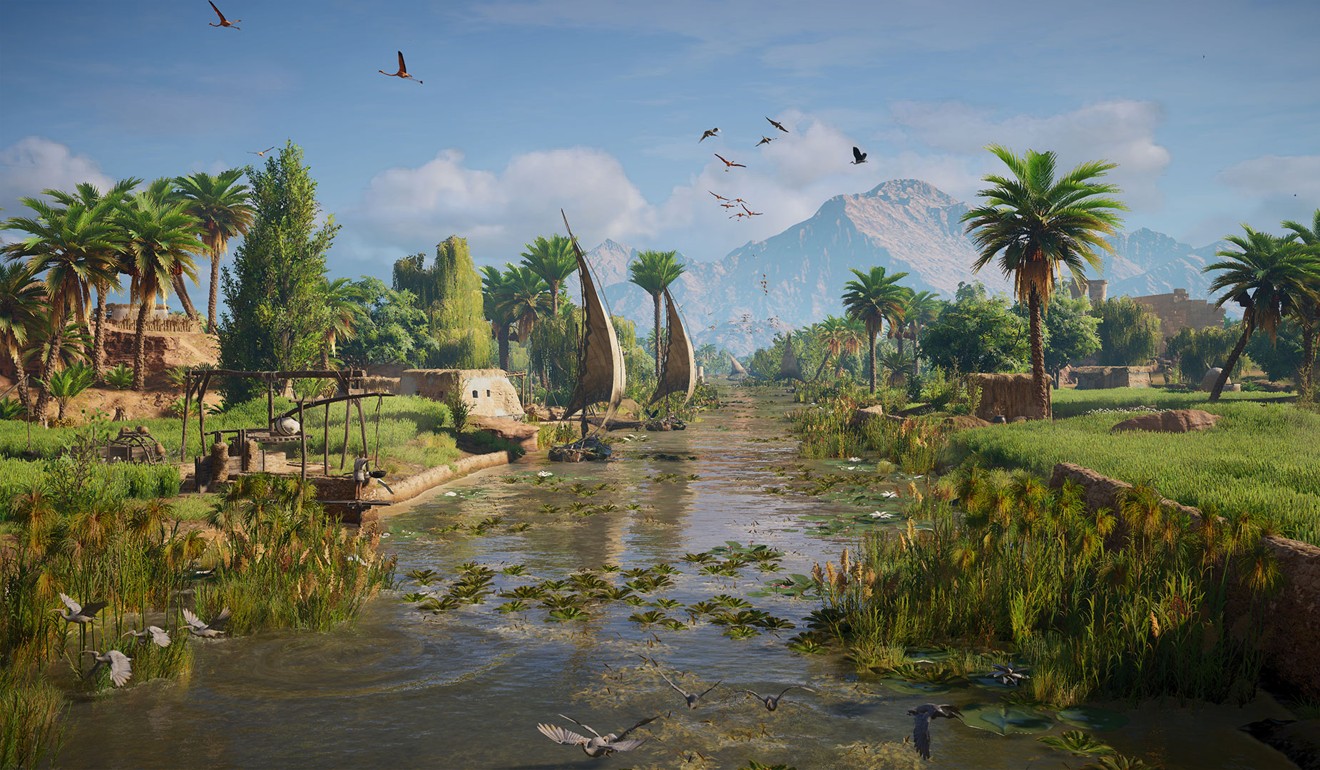
Review | Review: Assassin’s Creed Origins takes cues from Dark Souls and The Witcher and is much better for it
The series was getting a bit tired but with improved controls and storytelling devices, together with Origins’ incredible depiction of ancient Egypt, Ubisoft have created a game that is thoroughly mesmerising
Assassin’s Creed Origins
Ubisoft
Not long ago, I used to associate the Assassin’s Creed series with the words “annual serialisation” and “series fatigue”. Although I spent a number of contented weeks taking in the sights of Renaissance Italy as depicted in Assassin’s Creed II (2009) and Assassin’s Creed: Brotherhood (2010), my attention drifted from the series for a number of years until I was enticed by the good notices that Assassin’s Creed IV: Black Flag (2013) received.
Alas, that one never got its pirate hook into me. The game’s much-lauded maritime battles weren’t enough to make me warm to its protagonist and his tasks.
New ‘Star Wars’ game’s developers apparently getting death threats
So I wasn’t overeager to get my gauntlets around the recently released Assassin’s Creed Origins (available for PC, PlayStation 4 and Xbox One). Yet, after completing its main campaign and spending more than 40 hours with it, I’ve been reminded of why the series used to regularly pin my attention.
To wander across Origins’ vast environments is to indulge in a historical, sci-fi fantasy whose visual opulence often made me think of David Lean’s films. No wonder there is an in-game camera feature – there are a stupefying number of visual details that invite recording.

History is both the springboard and the plaything of the Assassin’s Creed franchise. The games ask players to step into the boots of a superhuman assassin and hobnob with the luminaries of a particular epoch. Setting could hardly be more important to these games, and Origins benefits from a fantastic one.
It unfolds circa 50BC during the waning decades of the Ptolemaic Kingdom, when Ptolemy XIII was locked in a power struggle with his sister, Cleopatra. For most of the game, players assume the role of a Medjay – an elite caste of warriors sworn to protect Pharaonic interests – named Bayek.
Circumstances conspire to launch Bayek and his wife Aya, also a Medjay, on a winding road of vengeance following the abduction and death of their young son. The perpetrators belong to a secret sect known as The Order of Ancients. Fans will recognise this sect as the forerunners to the Templars, the authoritarian cabal that, in the mythology of the series, has warred with the more liberal-minded Hidden Ones, a.k.a. the Assassin Brotherhood, for over two millennia.
Retro gaming gets 21st-century boost with Analogue consoles
It appears that the designers looked towards the Dark Souls and The Witcher series for inspiration. Origins’ combat is less stilted than what I recall from the earlier games where opponents seemed to wait their turn to attack.
The controls are structured around the familiar shield-weapon set-up of Dark Souls and, in terms of storytelling devices, a number of Bayek’s quests require him to investigate a crime scene in a similar manner to that in the Witcher games.
I did notice, though, that while I appreciated Origins’ story, the characters broadcast their intentions to the audience in a way that runs counter to the best storylines in the Witcher games.

Overall, the quests in Origins are generally well constructed and a fair number of the side quests pick up on themes and characters from the main story, exploring them in ways that reflect well upon the whole.
I found it interesting to watch Bayek play hide-and-seek with some kids at a temple, help a woman perform a fertility ritual so she could carry a baby to term, help other parents grieve for their lost child, and fight a woman attempting to resurrect her daughter.
For all the hours I have put into Origins there is still much that I could do. There are chariot races and a Ben-Hur trophy that I have not yet won, as well as side quests for which my character is under-levelled.
Review: new South Park game is one big superhero send-up
Naturally, for an open-world game of this size, I’ve encountered a few bugs. My favourite involved a fierce underwater battle with a hippo. In any case, the occasional AI pathfinding mishap did not detract from the pleasure I took in visiting the Library of Alexandria, climbing over the Sphinx, sliding down the side of a pyramid, and listening to people defend and deride poets.
In Assassin’s Creed Origins, history and the amusement park intermix and the result is thoroughly transporting.

